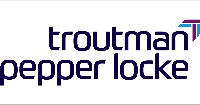In the realm of debt collection law, New York State has set a formidable standard with its New York State Debt Collection Procedures Law (NYDCPL), continually evolving to balance the scales between debtors’ rights and creditors’ interests. As we delve into 2024, recent amendments to the NYDCPL have brought forth significant changes that demand a nuanced approach from both debt collectors and consumer advocates alike.
Unpacking the New York State Debt Collection Procedures Law
The NYDCPL serves as a cornerstone of legal protection, outlining stringent guidelines for debt collectors operating within the state. Central to its provisions are mandates ensuring fair and transparent communication between debtors and collectors. Recent amendments have sharpened these requirements, placing greater emphasis on upfront disclosures and prohibiting misleading or harassing tactics during debt collection efforts.
Impact on Debt Collection Strategies
For professionals in the debt collection industry, the amended NYDCPL presents a paradigm shift. Where once aggressive tactics may have been commonplace, today’s landscape demands a more strategic and empathetic approach. Debt collectors must now prioritize clear and accurate communication, ensuring debtors are fully informed from the initial contact about their rights and obligations.
Strategically, this shift requires meticulous attention to compliance with the amended NYDCPL’s disclosure requirements. Debt collectors must furnish detailed information regarding the debt, including its origin and the debtor’s rights to dispute its validity. By adhering closely to these guidelines, collectors not only mitigate legal risks but also cultivate a reputation for ethical practice within the industry.
Mandatory Disclosures and Mitigating Litigation Risks
The amended NYDCPL places a premium on transparency. Debt collectors must provide comprehensive disclosures at the outset of communications, detailing the debt’s nature, amount, and avenues for resolution. This transparency not only empowers debtors to make informed decisions but also serves as a safeguard against potential litigation.
In 2024, litigation risks loom large for those failing to comply with NYDCPL amendments. Courts are increasingly intolerant of breaches that undermine consumer protections, signaling a judicial trend towards stricter enforcement. Debt collectors must therefore maintain meticulous records and embrace proactive compliance measures to address these legal challenges effectively.
Upholding Consumer Rights and Legal Precedents
Crucially, the NYDCPL amendments reinforce protections against harassment and unfair practices, championing consumer rights in debt collection scenarios. Recent legal precedents underscore the judiciary’s commitment to holding debt collectors accountable for violations, setting benchmarks that resonate throughout the industry.
In 2024, notable legal rulings have reaffirmed the judiciary’s stance on protecting consumers from predatory collection tactics. Landmark cases have emphasized the importance of adhering to the spirit, not just the letter, of the law, fostering an environment where debtors can challenge unfair practices with confidence.
A Forward-Looking Approach
As we analyze the intricacies of debt collection law in New York State, stakeholders must adopt a forward-looking approach that balances regulatory compliance with ethical stewardship. The NYDCPL amendments reflect a broader societal shift towards transparency and fairness in financial transactions, urging debt collectors to embrace practices that respect the dignity and rights of debtors.
Looking ahead, proactive engagement with legal updates and industry best practices will be crucial for addressing the evolving landscape of debt collection law in New York. By prioritizing integrity and consumer-centricity, professionals can not only meet regulatory obligations but also contribute to a more equitable financial ecosystem for all parties involved.
Conclusion
In conclusion, the amended New York State Debt Collection Procedures Law marks a pivotal moment for debt collection practices in 2024. By emphasizing transparency, consumer protections, and adherence to legal standards, these amendments aim to foster a balanced environment where debtors’ rights are safeguarded without compromising creditors’ legitimate interests.
For professionals in the accounts receivable and debt collection industries, embracing these changes is not just a legal obligation but an opportunity to redefine industry norms and build trust with consumers. By analyzing the nuances of the NYDCPL amendments with diligence and empathy, stakeholders can chart a course towards ethical debt collection practices that uphold the integrity of our industry.





